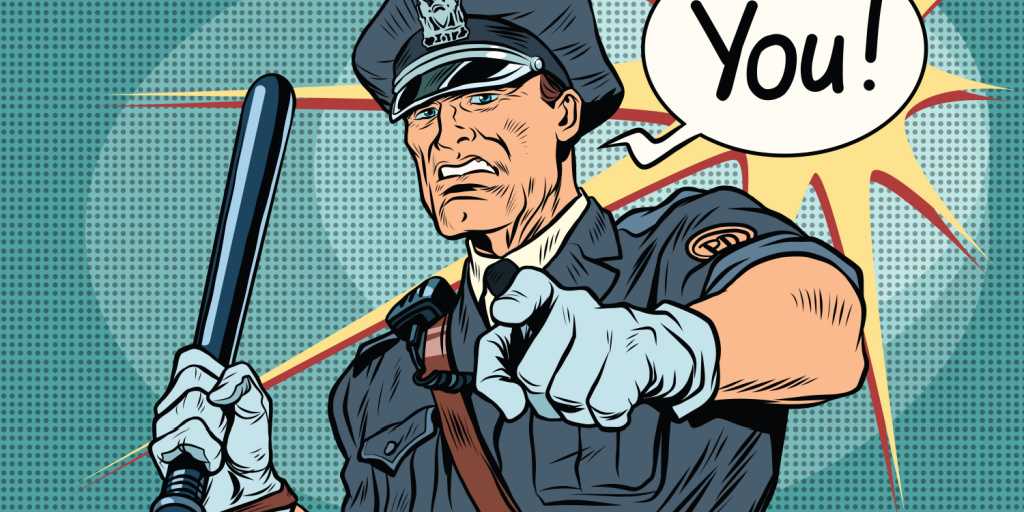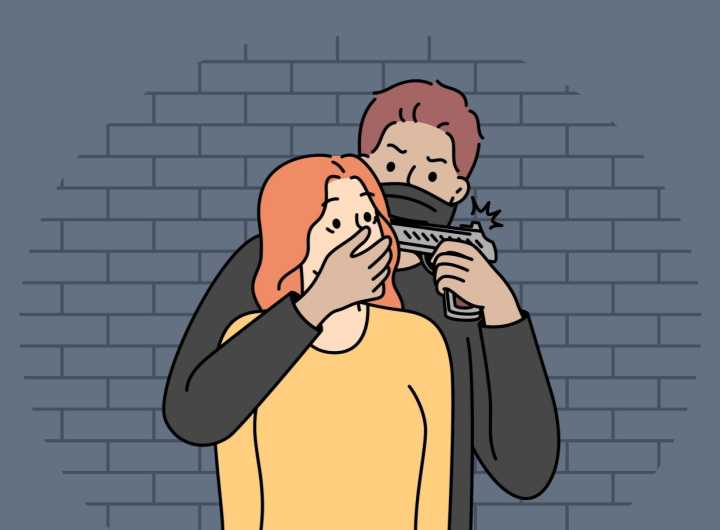The Myth of Medical Marijuana in Arizona: DUI
These days in Arizona, when folks are stopped by the local police, you increasingly hear them say to the officer standing impatiently at their driver’s side window: “Here’s my license to drive, Officer, and here’s my other license, my license to smoke.” What follows then is the inevitable “Step out of the car, Sir.” And the handcuffs come after that.
In 2010 Arizona voters passed through popular referendum the Arizona Medical Marijuana Act (AMMA), codified as A.R.S. §36-2801 through §2819. Embedded in the AMMA are ostensibly extensive rights and immunities accorded to certified state-issued card-holders. Two in particular I’ll mention:
First, ARS § 36-2811(B) provides: “A registered qualifying patient [] is not subject to arrest, prosecution, or penalty in any manner or denial of any right or privilege … or disciplinary action … for the registered qualifying patients medical use of marijuana …”
Second, ARS § 2802(D) provides: “A qualifying registered [medical marijuana patient] shall not be considered to be under the influence of marijuana [while driving] solely because of the presence of metabolites or components of marijuana that appear insufficient concentration to cause impairment.”
At last count there were about 50,000 registered qualifying patients holding Arizona medical marijuana cards. They probably thought they would be accorded the AMMA protections, described above (or maybe they didn’t read the fine print). But the AMMA is not quite working out as folks expected.
Learn More about Arizona’s Marijuana DUI Laws
Medical Marijuana & DUI: A primer
Despite the law described above, you can still get a DUI in Arizona without a drop of alcohol in your system– not only for driving while “impaired” by legal medical marijuana, but just for having the drug or “metabolite” of medical marijuana in your body.
In Arizona marijuana DUI cases police always look for two things in your blood: One: tetrahydrocannabinol or “THC”– the active ingredient in marijuana that turns you into a waste case; and two: carboxy, the main metabolite of THC, which is like the left-over residue after your body uses the THC. The carboxy metabolite can remain detectible in your blood for up to a whopping thirty days: a month after you smoke your prescribed dose or down that edible. Thirty days is a pretty long time. Either the drug or the metabolite can get you convicted.
And for those of you who don’t know, a little background on Arizona’s traditional DUI “double hurdle” laws: the police here in Arizona almost always charge you doubly: First they charge ARS §28-1381(a)(1) “impairment” “to the slightest degree” (whatever that means); and second they charge you at the same time with §1382(a)(2) “over the legal limit.” [.08] To win, you’ve got to beat both charges.
Learn More about Arizona DUI Laws
With marijuana they charge you first with §1381(a)(1) “impairment” “to the slightest degree” in your ability to drive by reason of marijuana, including legally prescribed medical marijuana and, second, with § 1381(a)(3) driving with any amount of marijuana or “metabolite” the carboxy, in your system.
As to the first hurdle, “impaired to the slightest degree” by marijuana, note that there’s no “legal limit” yet for medical marijuana in Arizona. In contrast, Colorado and Washington, for example ( both now having legalized recreational marijuana) , have established legal limits of 5 nanograms, a pretty low threshold, but a threshold nonetheless (Nevada has a threshold of 2 nanograms).
In contrast, Arizona a “zero tolerance” medical marijuana state has no legal limit. So they can convict you, as amazing as it sounds, for any amount of medical marijuana, so long as they can convince a jury that your “ability” to drive was “impaired to the slightest degree.”
Note additionally that your actual driving doesn’t have to be “impaired” at all by marijuana to be convicted, just your “ability to drive”– which the prosecutors and police try to prove with the famous “field sobriety tests” like the “walk and turn” and “one leg stand.” They supplement this with the testimony of a DUI police officer, a “Drug Recognition Evaluator” who will testify that he observed things like “eyelid flutters” “body tremors” a “green coated tongue” all items that in his view are consistent with being “under the influence” of marijuana
As to the second hurdle — §1381(a)(3), as amazing as this sounds, medical marijuana users can still be found guilty of driving with THC or its metabolite, carboxy, even if the jury finds them not guilty of driving “impaired” by the marijuana at all. That’s right even if the jury finds they weren’t impaired at all–even to “the slightest degree.”
In a recent case, Darrah v. McClennen ex. Rel. County of Maricopa, —Ariz.— (Oct. 21, 2014), 2014 WL 5339388, the Arizona Court of Appeals held as much. There, Travis Darrah, a card-holder was charged, in a typical Arizona double hurdle fashion, with two counts of marijuana DUI—both “impairment” to “the slightest degree” §1381(a)(1); and presence of drug or metabolite §1381(a) (3). Darrah took his case to a jury trial in Glendale, Arizona, but the trial judge ruled that he couldn’t present evidence that he had a medical marijuana card. The jurors found Darrah not guilty of the first charge, but, as often happens, found Darrah guilty of the second charge, the presence of the drug or metabolite. Darrah appealed, arguing that ARS § 36-2802(D), which we talked about above, by its plain language (“A qualifying registered [medical marijuana patient] shall not be considered to be under the influence of marijuana [while driving] solely because of the presence of metabolites or components of marijuana that appear insufficient concentration to cause impairment”) prohibits such prosecutions. Seemed like a no-brainer.
Yet, the Arizona Court of Appeals somehow disagreed, and specifically held that despite §36-2802 immunity, Darrah nevertheless could be found guilty. The Court in Darrah memorably stated: “If Arizona voters had intended to completely bar the State from prosecuting authorized marijuana users under § 28-1381(a)(3), they could have easily done so by using specific language to that effect.” Darrah, supra at *2.
Conclusion
By now it’s pretty common knowledge that if you just smoked some marijuana and go out and drive, and are dumb enough or unlucky enough ,the police here will not hesitate—they can and will arrest you for driving “impaired” by marijuana “to the slightest degree.” But what’s surprising is it looks like, according to the Arizona Court of Appeals in Darrah, medical marijuana card holders are not safe to drive, despite what the Arizona voters established with the AMMA, even if they’re not impaired, but simply have the drug or long-lasting metabolite in their system.
So, in this and other ways the concept of a safe haven for medical marijuana users in Arizona is proving to be somewhat of a myth.
Recommended Articles

Arizona’s new sealing statute is a powerful way for people who have been charged or convicted of many common offenses, to be able to say “no” in many instances.

In Arizona, “Aggravated Assault” charged under ARS § 13-1204 is a Class Four Felony, and in some cases with mandatory prison.

DUI or domestic violence police misconduct even if not resulting in grievous misfortune can sometimes provide a helpful remedy for the criminally accused.

people are surprised by how outsized the consequences some misdemeanor convictions can be. collateral consequences—meaning all those hidden consequences.

For thirty years two federal laws prohibited all those convicted of misdemeanor domestic violence offenses from ever possessing firearms.

About Michael Harwin
Michael’s skill and experience have been recognized repeatedly. He holds an A-V 5/5 preeminent rating by Martindale Hubbell. He has been named one of the top lawyers in Arizona by Southwest Superlawyers, and one of the best lawyers in Tucson by Tucson Lifestyle Magazine. He also has been named one of the best lawyers in the United States by BestofUS.com , and given the highest rating possible by AVVO, 10/10 Superb. Amazon Books


